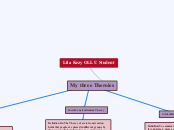von Lila Kezy Vor 8 Jahren
335
OLLU Map
In the context of social work, theoretical orientations are crucial for enhancing cultural sensitivity, particularly when working with Hispanic and Latino clients. Critical race theory (

von Lila Kezy Vor 8 Jahren
335

Mehr dazu